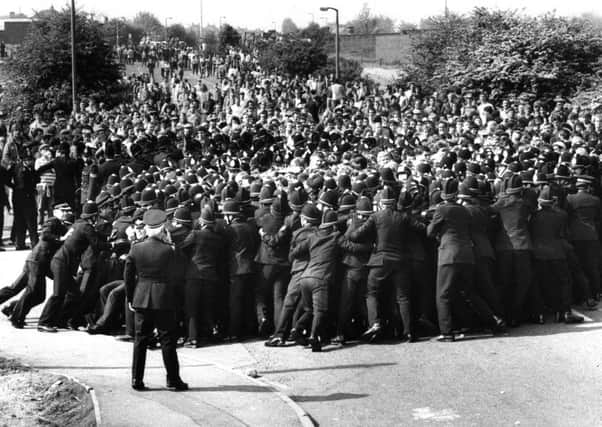IPCC accused of “gagging order” over miners’ strike Orgreave investigation


The Independent Police Complaints Commission (IPCC) has decided whether it can hold a full inquiry into events at the Orgreave coking plant during the dispute.
Police clashed with striking miners during what became known as the Battle of Orgreave.
Advertisement
Hide AdAdvertisement
Hide AdMore than 90 miners were arrested but subsequent court cases against them collapsed.
The IPCC has written a report and offered to provide details of its findings to the Orgreave Truth and Justice Campaign (OTJC).
But access to the material has been limited to a handful of individuals who would be prevented from sharing any of the details.
The campaign said in a statement: “For the OTJC this would have meant that a small number of its members would have access to information but effectively they would have signed a gagging order preventing them discussing it with other interested OTJC members and more widely.
Advertisement
Hide AdAdvertisement
Hide Ad“The OTJC has therefore decided not to comply with these onerous conditions.
“The OTJC strongly condemns this situation and reiterates its demand for a full transparent public inquiry into police actions at Orgreave in June 1984.”
On Friday the IPCC confirmed that its findings were only being shared on a confidential basis.
It said in a statement: “The decision and rationale documents have been shared on a strictly confidential basis with some interested parties, including a complainant, and we are awaiting a response from others to the offer to read the documents.
“We have also advised them that we have decided not to publish at this time and our reasons for that decision.
“We will publish the decision and the supporting rationale as soon as we can.”